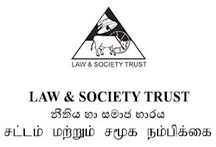Blog
November:2021
We are not a Monarchy, we are a Republic – will we remain so?
by Dr. Sakuntala Kadirgamar
“We are not a monarchy. We are a republic.”
The Hon. Mr. Ali Sabry’s words were heartening to read and to hear. However, it is worth reminding Minister Sabry that if Presidents in Sri Lanka foolishly believe that they are monarchs, or monarchs in the making, and unaccountable for their actions, it is because they are surrounded by sycophants who allow them to believe so. Historically, most of the sycophants who fuel the grandiose dreams of leaders and promote their infallibility are a part of their inner circle. The authoritarian or monarchical tendencies of Presidents and Prime Ministers are supported by sycophants in the cabinet, in parliament and key operatives within the political parties.
The citizens of Sri Lanka are quite aware of their rights; their desire not to become subjects of a king has been demonstrated time and again when they periodically turf these leaders out of power. Mahinda Rajapakse lost the elections in 2015, despite enjoying backing from within his cabinet, the Parliament and his party when he promoted the 17th amendment to the constitution to lift presidential term limits forever. Sycophancy was surely at its highest when the cabinet, parliamentarians and even the Supreme Court found creative arguments to justify the amendment and assure the people that the President’s right to contest elections in perpetuity enhanced the freedom of the electorate. We were told that it took democracy to a new height.
The people did not award Gotabaya Rajapakse with unlimited power. He had a strong support in Parliament but not a 2/3 majority. Yet sycophants seeking favour and position crossed over to give him that majority – it was not the people’s doing. Now, armed with the powers vested through the 20th amendment to the Constitution, the President believes that he is beyond accountability. The 20th amendment not only enhanced his powers as president, but it provided a specially designed pathway for his brother, a holder of dual citizenship, to be accommodated within the political firmament.
President J.R. Jayewardene was another trail blazer in this respect. He demonstrated his innate capacity to turn men into mice, when he secured from every member of his cabinet, signed and undated letters of resignation – leaving it to his discretion to fill in the date and send them on their way. President Jayawardene had a powerful cabinet – well-trained professionals and seasoned politicians that included Prime Minister Premadasa, Lalith Athulathmudali, Gamini Dissanayake, and Ronnie De Mel among others. Yet they meekly signed those letters and that set the tone for Jayawardene’s unilateralist style of government.
In the last year we have all experienced the perils and pains of this unilateralist style of government. The rule of law, constitutionalism, inclusion, solidarity – hallmarks of democratic republican government, have been swept aside. Public consultations, expert inputs to the framing and review of public policy and legislation and a neutral bureaucracy to implement government plans are by-passed and there is an endless appointment of task forces, many of which are populated by cronies, military personnel or retired military personnel. There is a clear drift towards the politicisation and the militarisation of civic spaces.
We are constantly reminded that the President Gotabaya Rajapakse has a mandate from the people. Indeed, all presidents have a mandate from the people – this is not unique. However, it is a limited and temporary mandate to govern in our interests and within the democratic framework through which he came to office. It is not the open-ended mandate to flex political muscle and govern arbitrarily. But increasingly, this is what transpires.
Under the cover of the pandemic and the economic crisis, far-reaching decisions are being made that fundamentally affect the political economy of Sri Lanka. We are aware of but unable to check the robber barons – both local and foreign – who enjoy political patronage and are enriching themselves under the cover of these crises. They enjoy a range of new freedoms – freedom from procurement rules and freedom from accountability. Sri Lanka’s national assets are bartered away and for terms that do not bear scrutiny.
The citizens of Sri Lanka have been subjected to many shocks this past year. The pandemic has forced us into lockdowns. Many people have lost their jobs. Children’s education is in a tailspin and the economy is crashing. Our lives are controlled by task forces that are either unmindful of or inexperienced in the tasks at hand and are better schooled in the use of force.
The people are stirring. The arbitrary decision to immediately switch to organic fertilizers has stirred the farmers. It has also stirred experts from the agricultural sector to speak out against its feasibility in its current form. The government’s refusal to consider the legitimate demands of the teachers has strengthened their resolve to strike. The dubious deals in the energy sector have stirred the electricity workers to call a strike. The decision to appoint Ven. Galagodaaththe Gnanasara Thero as the Chairman of the Presidential Task Force for ‘One Country – One Law’ has finally stirred the Minister of Justice.
The Thero’s appointment undermines the work of the Justice Ministry in this respect and given his background – a conviction for contempt of court, his profile as an anti-minority, and especially anti-Muslim instigator, undermines any commitment to the rule of law.
While Minister Sabry now asserts that Sri Lanka is a republic and not a monarchy, we are on the cusp of an opaque and potentially dangerous constitution drafting process. At risk are the structures of democratic governance and the hitherto separation of the military from politics, the commitments of inclusion of the minorities, through language rights and autonomy and the role of the clergy in politics too may be redefined. With these changes we move away from our seven-decade investment in democracy.

